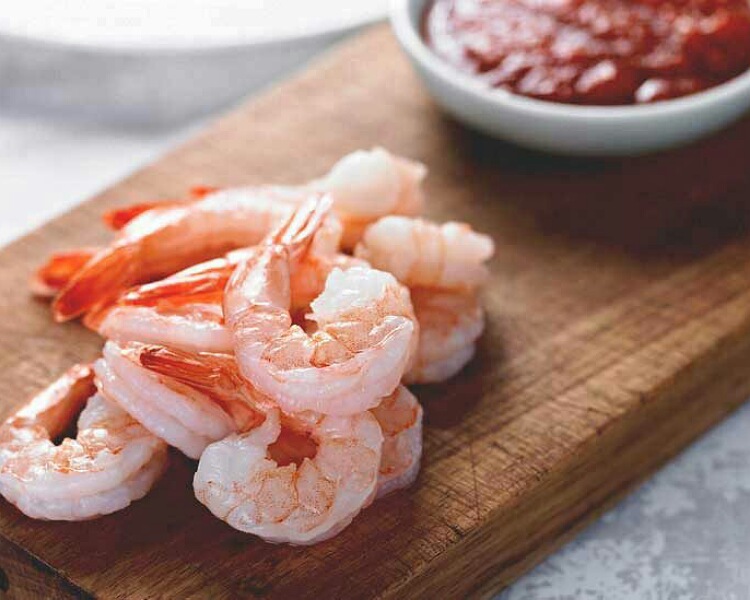Shrimp is a type of shellfish or a crustacean. It is healthy and has a lot of beneficial nutrients that pass on to the consumer. What is the nutritive value of shrimp? What are the benefits of eating it?
Shrimp
Shrimp is not a fish. It has a hard outer skeleton and jointed legs. It is a type of crustacean-like lobster, crab, etc. But it is seafood and has lots of essential vitamins, minerals, protein, healthy fats, and iodine in it.
However, some believe that shrimp is not healthy due to its cholesterol content. There is also a belief that farm-grown shrimp affects health negatively while wild-caught shrimp is better. Are these beliefs true? Is there any evidence to prove the above points? Let us analyze.

Nutritive value
Shrimp has an impressive nutritive chart. It is low in calories but enriched with a lot of vitamins and minerals. A 3-ounce serving provides 84 calories. The protein in this is 20.4 grams and iron is 0.433 mg. Sodium is 94.4 mg and potassium is 220 mg.
Phosphorus is 201 mg while zinc content is 1.39 mg. And magnesium is 33.2 mg. The iodine content of shrimp is excellent. This mineral is essential for thyroid function and brain health. Additionally, like all seafood, shrimp has a lot of omega-3 fatty acids.

As regards its other nutritive value, there is cholesterol in shrimp. It is 161 mg in a 3-ounce serving of shrimp. Hence, people assume that eating shrimp will lead to a rise in blood cholesterol.
But studies have refuted this fear. Since not all people are sensitive to dietary cholesterol. When the food cholesterol is high, the liver’s production of cholesterol decreases so that blood cholesterol is maintained.
It is only in a quarter of the people that this might not hold and dietary cholesterol can contribute to the high levels of cholesterol in the blood. In such people, limiting the portion size of shrimp would be useful.
Antioxidant astaxanthin
Shrimp has a lot of the antioxidant astaxanthin. This gives it a reddish hue to its cells and the shrimp. Shrimp procures this substance from the algae that it consumes. This acts as an antioxidant and fights cell damage and inflammation. Therefore, it is good to prevent the risk of chronic diseases in the body.

It also has a role in the health of the blood vessels and arteries and hence of the heart too. This substance also causes a rise in the blood level of healthy fat or cholesterol also called HDL or high-density lipoprotein.
As it prevents chronic diseases, it also has a role in prevention of neurodegenerative diseases such as Alzheimer’s disease, cognitive decline and memory loss. But more studies on this would help elucidate its role in brain health.
Also, read Tender Shrimp Recipe in an Instant Pot
There is a problem in eating farm-raised shrimp because the shrimp growers use antibiotics during the phase. These might enter the body of the shrimp and hence the consumer of it.
Though this would not directly affect the eater, it could lead to outbreaks of resistant infections that could be difficult to control. Shrimp allergy is also known and one should be careful if sensitive to it.
